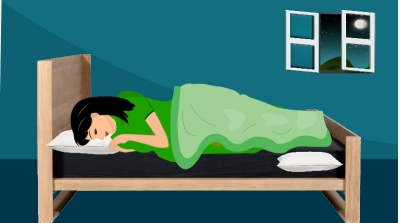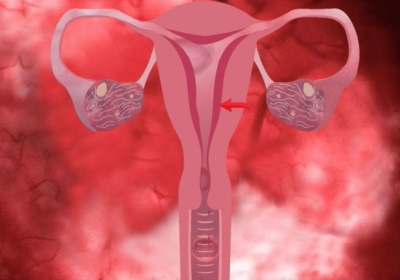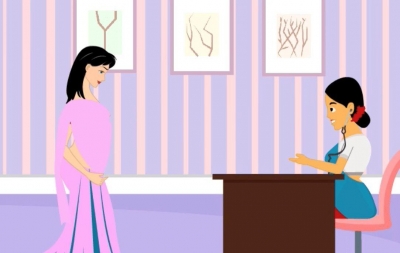But Humans have menstrual cycles repeating every month. Why do we menstruate?
Menstruation is essentially the loss of inner lining of the uterine wall. Every month the inner lining of the uterus gets thickened in the first half of the menstrual cycle anticipating conception and pregnancy. The inner lining of the uterus called the endometrium thickens, and develops an extensive network of blood vessels and prepares for the embryo to get implanted after fertilization. Usually around the 14 to 15 day of the cycle, under the influence of hormones from the pituitary gland, the release of the egg occurs from the ovary. This is called ovulation. If fertilization does not occur during this time and if the woman does not get pregnant, the thickened uterine lining which had developed in the first half of the cycle anticipating pregnancy will now slough out through the vagina as a menstrual period. On an average, a woman loses 30 to 70 ml of blood every day for 3 to 7 days during each cycle. The most fertile period (the time with the highest likelihood of pregnancy resulting from sexual intercourse) covers the time from some 5 days before until 1 to 2 days after ovulation
During the first part of the cycle i.e from the day 1 of the cycle, one of the follicles in the ovary grows and reaches maturity. This mature follicle called the Graffian follicle releases the egg around the 14th day of the cycle. Which ovary (right or left ) releases the egg is entirely up to chance. Sometimes both may release the egg and if both of them get fertilized it may cause the birth of fraternal twins.
After being released from the ovary, the egg is swept into the fallopian tube by the fimbria, which is a fringe of tissue at the end of each fallopian tube. After about a day, an unfertilized egg will disintegrate or dissolve in the fallopian tube.
Menstrual cycle snapshot -
- Day 1 to Day 5 - Bleeding - when the uterine lining is shed
- Day 1 to Day 14 - Egg is developing inside the follicle in the ovary
- Day 14 to Day 15 - Matured Egg is released from the follicle
- Day 15 to Day 28 - If the egg is not fertilized, the egg cell disintegrates and after around 2 Weeks after ovulation starts the next cycle





